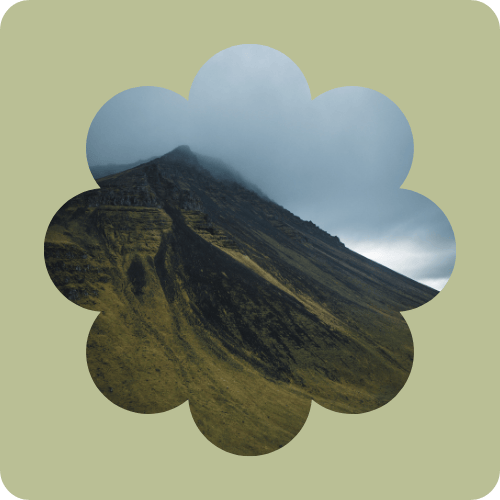21 Days of Rest, Recovery, and Resistance
Author
Mei-Ling Patterson
Hello, my name is Mei-Ling Patterson (She/Her) and I volunteer as the Chief Communications Officer at Shake Up The Establishment (SUTE)! I was born and raised on the unceded and stolen territories of the Skwxwú7mesh (Squamish) and Səl̓ílwətaɬ (Tsleil-Waututh) Nations, what is so-called North Vancouver, BC. I have always enjoyed spending time under the protection of the old growth trees on this land and find the continued destruction of these hundreds of year-old beings and forests heartbreaking. However, I also recognize that as a third-generation immigrant and settler I continue to benefit from extractive settler colonial projects and resource destruction.
In elementary school and high school, my knowledge of injustices against Indigenous and racially-minoritized communities in Canada was limited. The educational system and curriculum I experienced was Eurocentric focusing on the imperialism and colonization of the lands which are currently known as Canada and centering white as the default. For example, I recall briefly learning about Canada’s racist Head Tax and Exclusion Act towards Chinese migrants when I was in elementary school. Alongside the injustices and violence committed against Chinese railway workers by white settlers. As a mixed-race Chinese Canadian of half-Chinese and half-white (British and Irish) descent, I felt shocked and angry upon learning about this oppression. But it wasn’t until I began my master’s that I realized the extent to which the histories of Chinese migration to so-called British Columbia had been erased. I was able to learn through a research paper that Chinese and Indigenous communities shared a history of oppression and resilience towards white settler communities during the period of early Chinese migration to the province. Through this shared experience, solidarity and reciprocal relationships were built but unfortunately, this history has experienced much erasure and stress.
As such, in my role at SUTE as an ally, I aim to amplify voices and histories which continue to experience erasure and commit to practicing intersectional environmental justice. I would like to acknowledge that I am a young bisexual cisgendered woman raised in a middle-class family with English as a first language. I am neurotypical, temporarily able-bodied, and was afforded the privilege of attending post-secondary. I do not intend to speak on behalf of any communities as I recognize that there are many unique privileges and intersections within my identity which are impactful to my lived experience and perspectives.
Editor
John O’Connor
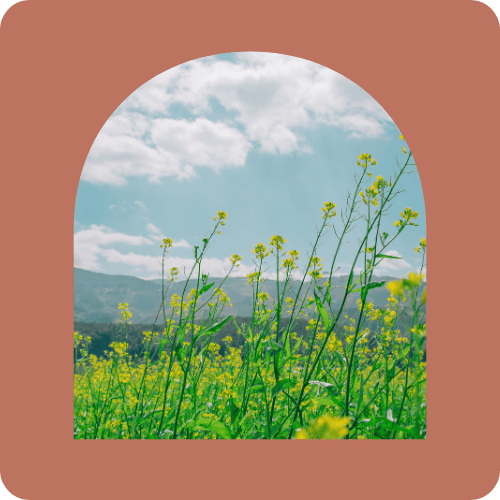
3-Week Reflection Prompt Challenge for Climate Activists, Organizers and Engaged Citizens
With the never-ending cycle of news stories related to the wellbeing of the Earth and our communities, it is a natural response to feel an overwhelming sense of eco-grief or anxiety towards the present and for our futures. For climate activists, these feelings can encourage action to support a healthier planet, and these feelings can cause a sense of despair that discourages taking steps toward potential opportunities. How do we address eco-grief and eco-anxiety head-on? Acknowledging their presence in our lives but not letting them influence our activism in a negative way?
Too often, we fall into the trap of thinking that working for as many hours as we can until the point of burnout is how we can be most productive and provide the most for the causes for which we care. However, as a loving act of resistance against this idea, we challenge this narrative by encouraging rest infused with climate optimism, to show gratitude for your mind, body, communities and the Earth for everything they provide.
To help kickstart this shift in thinking towards climate dreaming and optimism, we have crafted a 21-day journaling exercise to encourage daily moments of Rest, Recovery and Resistance. Why 21 days? Some say it takes 3 weeks to make a new habit, and so we hope these days are some first steps towards a better sense of wellbeing. Also, feel free to reflect on the prompts in any way you see fit! While writing in a journal is always a classic go-to, use your own favourite form of expression by reflecting through photography, artwork, music, or even going on a walk or run and meditating on it. Whatever makes you feel most connected to yourself, your community, and the world around you is always the best way to engage. These are also great conversation starters to share with your loved ones or can be used as ideas to continue to show your gratitude for yourself and others!
Day 1:
Today is the start of a new beginning of loving and caring for yourself. Intentionally plan something today that you know will bring you joy – whether it’s going to your favourite coffee shop before work, calling a loved one you haven’t spoken to in a while, setting aside some time for creative work like doodling or playing music, or visiting your favourite outdoor space (depending on the weather). After doing so, think about how you can continue to plan more daily moments of happiness in your life!
Day 3:
Think about a figure who has greatly inspired your work, studies, or activism. Remember what knowledge or perspective they shared with you that made such an impact on your life. Now, if you want, get creative by planning the ideal outdoor adventure with them – where would you go? Would you explore somewhere new or take them to your favourite outdoor spot? What would you ask them? It may not be possible to go on this trip with them, but thinking it out can inspire a trip you do take one day, or the exercise can show you what you value about this person.
Day 4:
Day 5:
What are you most proud of yourself for accomplishing? So often, we complete a goal or a project, and we only are able to celebrate it at that moment or only shortly afterwards. Graduations can come and go quickly, despite how many years it takes to get there. Today, take the time to honour and celebrate yourself again for all which you have accomplished and what you will continue to do.
Day 6:
Be a reason someone else smiles today! Intentionally plan to bring joy to someone else today (or many someones) by bringing your favourite coworker their favourite coffee to work or sending a text message to a friend to encourage and remind them how amazing they’re doing. No matter how big or small the gesture may seem, every act of kindness matters.
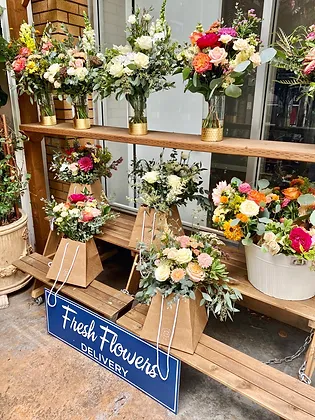
Day 8:
Reflect on what or who has been instrumental in instilling your connections with nature and what has inspired you to protect the outdoors. Listen to Episode 2 of our podcast Establish, connections with nature to hear some stories about the importance of grounding yourself in the space around you.
Day 9:
As climate activists, grief is, unfortunately, something we’ve become accustomed to through engaging with the climate news cycle. Think about your favourite outdoor space and what makes it so special to you, is it because of the memories you have there? The people you’ve gone there with? The scenery or view? Has this place changed at all yet because of climate change, if not, how do you expect it to change or to continue to change? How can we organize as a collective to mitigate the effects of climate change on this place, and what can we do to adapt to it?
Day 10:
Day 11:
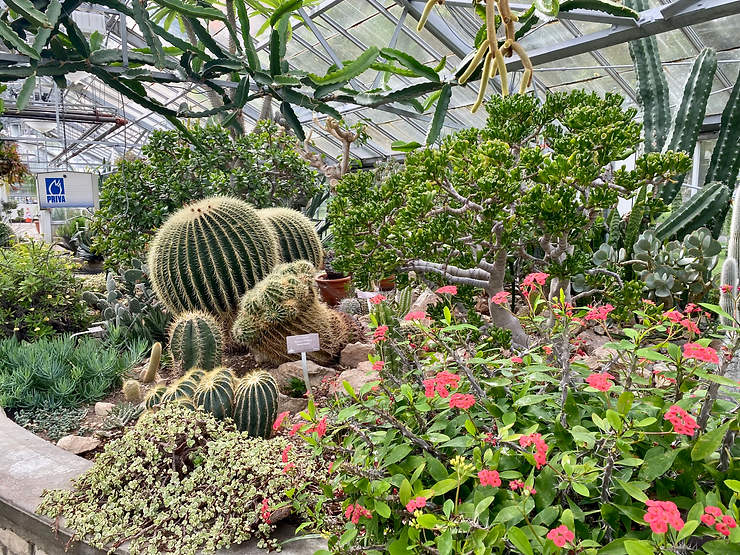
Get to know the biodiversity around you! Return to your favourite outdoor space and challenge yourself to identify 5 different plants and/or animals. If you need help, check out these resources.
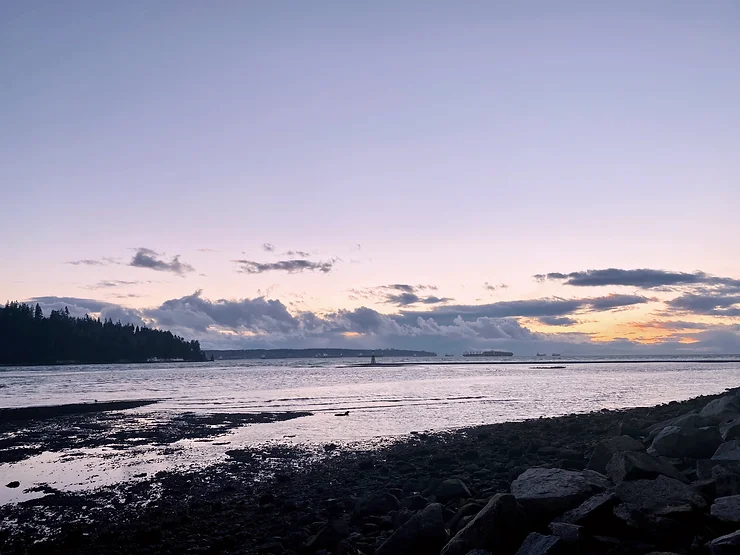
Day 15:
Throughout most of the past few weeks, we have encouraged you to centre joy, we know that encouraging positivity all the time can be just as toxic as the eco-anxiety or grief that many of us are experiencing. This is a gentle reminder to rest and take care of yourself and that it is perfectly normal and healthy to feel negative emotions. Allow yourself the space to resist toxic positivity by resting and validating yourself.
Day 16:
As activists, we’re often looking out for what can be done to ensure that communities and the environment around us are protected. When we offer assistance or support spaces for healing, sometimes we put our own need for healing on the back burner. Reflect on what it is that you need personally or professionally to ensure that you are given the space to heal from anything which you may be grieving and to ensure that your safety and boundaries are protected.
Day 17:
Make the time today to speak with a loved one who has expressed interest in your activism, the work and initiatives in which you’ve been involved in. Story swap and share with them the knowledge which you hold. Remember to honour yourself throughout this practice and process and only do as much you’re able! Take care of yourself before, throughout, and after the process and only share as much as it brings you joy.
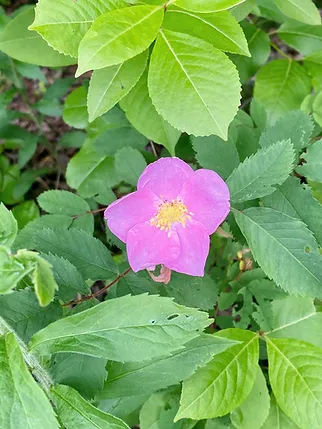
Day 18:
Reflect on one of the happiest memories or moments you’ve experienced. Where were you, what were you thinking about, who were you with? How can you intentionally plan for moments like this?
Day 19:
Connecting with non-human living things brings new perspectives and a sense of grounding to a space. What is your favourite plant or animal? What do you love most about it? Can you set aside some time today, this week, this month, or even this year to be able to see and spend time with this plant or animal? Do you notice a change in yourself or your wellbeing when spending time within this space?
Day 20:
Day 21:
CONGRATULATIONS, YOU DID IT! 🍾💫 Reflect on all that you’ve done to honour, love, and care for yourself and others this past month by taking part in this journey. Have you noticed any differences in your mental or physical well-being? Remember to treat yourself to something special today because you deserve it! 😉
Looking for additional prompts for the 21 days (and beyond)? Check out some of the other incredible initiatives and resources doing amazing work within this space:
Circularity Community: a multimedia platform providing accessible mental health resources for anyone struggling with eco-anxiety.
Climate Journal Project: an online community that provides guided reflections and challenges, designed to help you build resilience against eco-anxiety so you can live with greater joy and purpose as we face major environmental changes ahead.
Dr. Jennifer Mullan (She/Her): creates spaces for people and organizations to heal. She believes that it is essential to create dialogue to address how mental health is deeply affected by systemic inequities and the trauma of oppression, particularly the well-being of Queer Indigenous Black Brown People of Color (QIBPOC).
Outdoor Journal Tour: The Outdoor Journal Tour and #wehiketoheal are designed for women who want to dive deeper into their personal development but are bored with traditional self-help methods. Participants will have the opportunity to explore scenic landscapes and hiking trails while being guided through an empowering (and customized) personal discovery process that uses physical activity, journaling and meditation as healing tools. The process includes daily writing prompts, engaging exercises and weekly guided meditations.
The Yumiverse Mindful Coloring Book: colour your way to a peaceful mind, body, and soul with this uplifting colouring book that gives off all the good vibes.
Shake Up The Establishment will also be releasing our very own Climate Dreaming Journal soon! To be the first to hear of its release, sign up for our newsletter (see the footer of our website) and/or follow us on social media.



